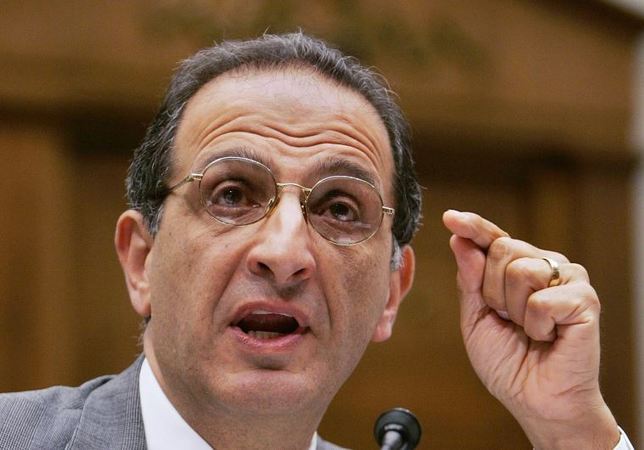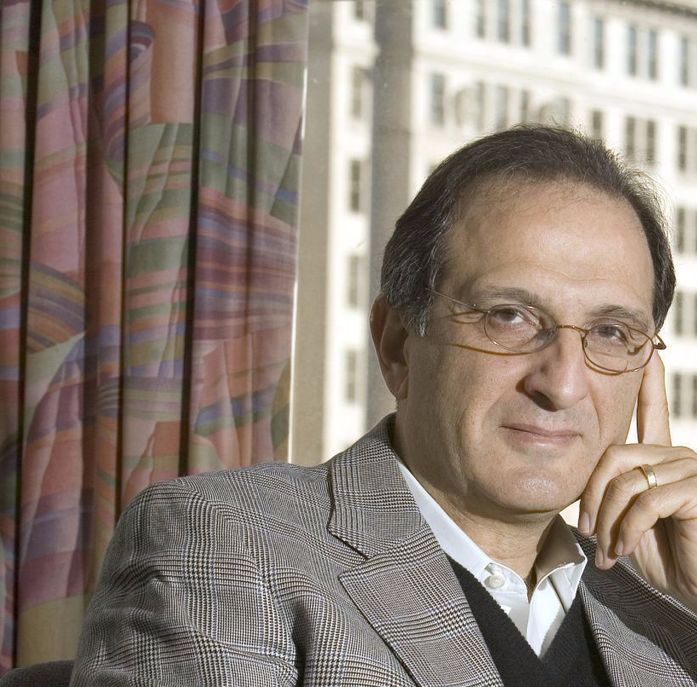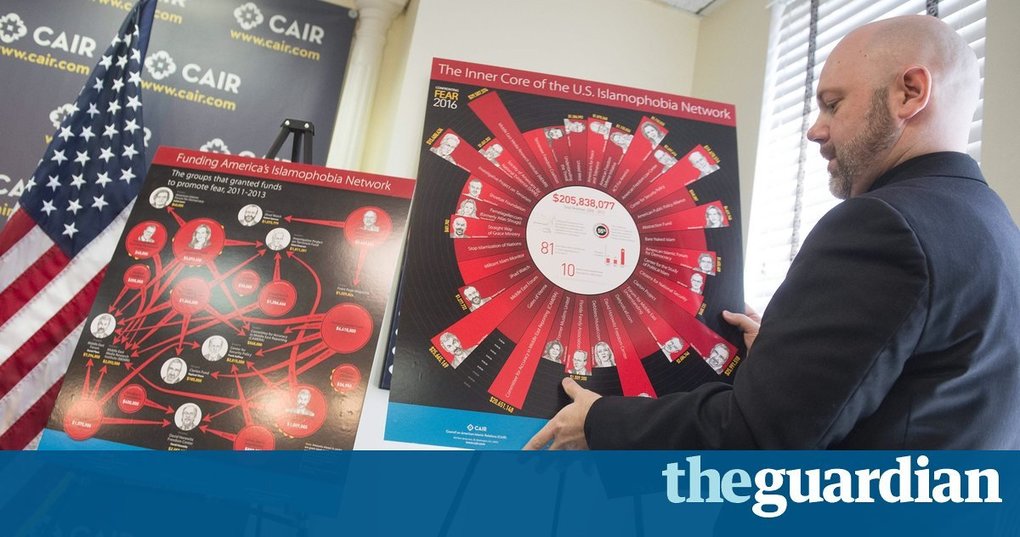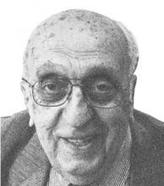
The Jerusalem Post
Not long after September 11, 2001, James Zogby addressed Adas Israel Congregation, the largest Conservative synagogue in Washington, DC, under strict instructions from its nervous leadership.
As founder and president of the Arab American Institute, Zogby was invited to speak to the temple on post-9/11 backlash against the US Muslim community. But he was asked repeatedly not to navigate his remarks into the hazardous waters of Middle East politics – a topic Zogby had become known for over several decades, to the exclusion of much of the rest of his work.
He performed before Adas as directed until the question and answer session, at which point every query fielded was related to Israel and the Palestinians.
“My views and those of people in the audience were quite compatible, and it was a great conversation,” Zogby recalled in an interview with The Jerusalem Post this week. “Everyone under 35 thought it was just great.”
A frustrated Zogby wants more of these conversations. But he’s convinced he is denied them because he was, long ago, reductively typecast. Zogby cannot seem to escape a congealed reputation among those who believe he is, in the words of a Republican Jewish Coalition advertisement released this month, “radically” and “stridently” fighting against Israel’s national interests.
“I’ve just been cast as the anti-Israel guy,” Zogby said. “People will type you. And I can’t tell you how many times I hear: ‘Getting to meet you, you’re totally different than what I thought.’ “Sometimes it gets a little old,” he added. “And when people do that stuff, it bothers me more than anything else that it fuels a simplistic, combative narrative.”
Zogby has been involved in shaping the Democratic Party’s election year platforms since 1988, and was tapped by Sen. Bernie Sanders of Vermont this year to help shape the political document. The appointment of Zogby by Sanders – the first Jewish candidate to seriously contend for a presidential nomination – caused a stir in the Jewish and American press, as well as among those in the Israeli and American Jewish communities who know of Zogby only for his opposition to Israel’s presence and activities in the West Bank.
Indeed, Zogby is the main figure on the Democratic Platform Committee who has and will continue to vocally lobby for language that recognizes Palestinian “dignity,” and against Israel’s “occupation” and “settlement activity” in “their” lands. He broadly supports the rights of Americans to boycott settlement projects. And when asked if he considers Prime Minister Benjamin Netanyahu to be “malevolent”– an accusation leveled against him in the Republican Jewish Coalition ad – he doubled down: “I believe that Netanyahu does more to delegitimize the State of Israel than the BDS movement ever has,” he asserted.
And yet Zogby rejects the assertion that he is “stridently anti-Israel” because of these positions: Productive and honest debate over Netanyahu and settlement policy is easier found in the Knesset, Zogby quipped, than in contemporary American politics.
Zogby believes in a final-status resolution to the conflict that involves mutual recognition of two states for two peoples.
He does not support boycotts that target Israel’s basic right to exist. And he says he actively fights to curb anti-Semitism within his own community, including where anti-Zionism and hatred of Jews conspicuously overlap.
“On the issue of delegitimizing Israel, I object to language that ultimately crosses the line into anti-Semitism,” he said.
“That language is offensive, its anti-Semitic and its hurtful.”
The son of Maronite Catholic immigrants from Lebanon, Zogby has become one of the most prominent voices for the Arab-American community. He laughed that the one point of tension during his visit to Adas Israel was over his embrace of intermarriage: “I have a son married to a Muslim, and a daughter married to a Jew,” he noted.
“When you type me and reduce me to one thing– which is some ‘hater of’ or ‘threat to’ or ‘danger to’ Israel – then there are crazy people out there who will decide to do things.
And I’ve had that – I’ve had death threats, I’ve had my office firebombed, so I know what that’s like,” he said. “But talking things out can actually make things better. Even if you don’t agree, just talking about something clears the air.”
As he works on the Democratic platform this year on Sanders’s behalf, Zogby has several priorities. On the Israel front, he has failed to achieve what he sought: inclusion of the phrases “occupation” and “settlement” activity in the Middle East section.
But “nobody’s going to remember me as the one who mentioned the Medicare-for-all plank, or the abolish the death-penalty plank”– language that he successfully secured, he said.
“We’re also fitting in policy that addresses respecting broader ethnic communities, into immigration language,” in contrast with the seemingly illiberal positions of presumptive Republican presidential nominee Donald Trump, he added.
There is a difference between being typecast and misunderstood, and for the most part, Zogby’s positions on Israel and the Palestinians are well known and well aired. He was a founding member of the Palestine Human Rights Campaign in the 1970s, and lobbied on behalf of Lebanese victims of the First Lebanon War (1982) before founding the Arab American Institute in 1985.
In the 1990s, US vice president Al Gore tapped Zogby to help promote business investment in the Palestinian territories, in a project known as Builders for Peace. And US President Barack Obama has twice appointed him to serve on the US Commission on International Religious Freedom, in 2013 and 2015.
If Zogby is anywhere near to being aligned with a single Jewish American organization that characterizes itself as “pro-Israel,” that group would likely be J Street, a Washington-based group that primarily lobbies for a two-state solution. He is harshly critical of Israeli government leadership and of its overall posture toward negotiations with the Palestinians.
He welcomes efforts to pressure the Jewish state, including through the United Nations and other international bodies.
He, like J Street, stands far afield from mainstream Jewish American organizations which claim to speak for a large, politically active US community invested in Israel’s interests.
Those organizations – such as the Anti-Defamation League, the American Jewish Committee and the American Israel Public Affairs Committee – fundamentally reject Zogby’s narrative constructs that feed a larger storyline of Israel as occupier and oppressor, not as the realization of Jewish self-determination in its ancestral homeland.
He uses the general vocabulary these groups typically characterize as “anti-Israel”– phrases they believe serve to vilify the state and undercut the basic justice of the Zionist movement.
But Zogby believes he is simply describing the realities on the ground – a practice required to initiate change. “There isn’t a president in the last 30 or 40 years who doesn’t call it an occupation,” he said, noting that consecutive Republican and Democratic administrations have also condemned Israel’s continued settlement activity in the West Bank.
“He’s the leading advocate for his community, and the Palestinian cause is certainly among their top issues,” said Steve Rabinowitz, a prominent and veteran Jewish Democratic activist. Rabinowitz has known Zogby for 25 years, and earlier this month helped to lead the fight against his effort to change language in the Democratic platform. “So of course we don’t agree – we are sometimes in very different places on this. But we’re often in the same place: He’s a two-stater.
He supports direct negotiations between the parties and a final-status agreement that is not unlike what lots of us support.”
Zogby sits on this year’s Democratic Platform Committee alongside fellow Sanders appointees Cornel West, a prominent democratic socialist, and Rep. Keith Ellison (D-Minnesota), the first Muslim elected to Congress.
“I think he’s gotten a bad rap in this deal, particularly from the right wing in my community,” Rabinowitz added, calling him an “honest, good guy” and a “loyal” Democrat. “It should be no disrespect to him personally that I’m pleased to say I’m glad he’s not prevailing.”
Source: www.jpost.com







